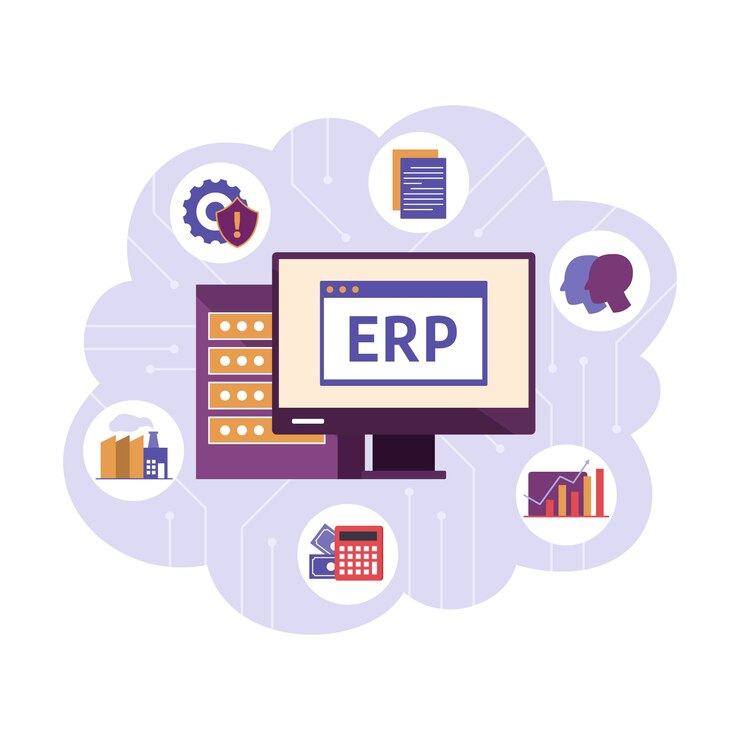ERP Revolution: Transforming UAE Businesses with Smart Management Systems”
Introduction In today’s competitive business landscape, ERP systems have become the backbone of organizational efficiency. For companies in the UAE, where digital transformation...

Introduction
In today’s competitive business landscape, ERP systems have become the backbone of organizational efficiency. For companies in the UAE, where digital transformation is accelerating, implementing the right ERP system can streamline operations, enhance productivity, and drive growth.
This comprehensive guide will explore:
- What an ERP system is and why it’s essential
- The unique advantages of an ERP system in the UAE
- Real-world ERP system examples from leading industries
- How to select and implement the best ERP solution for your business
By the end, you’ll understand how ERP technology can revolutionize your operations in the UAE’s dynamic market.
What is an ERP System?
An Enterprise Resource Planning (ERP) system is a unified software platform that integrates core business functions—finance, HR, supply chain, sales, and more—into a single system.
Key Benefits of an ERP System:
✅ Centralized Data Management – Eliminates silos and ensures real-time data access
✅ Process Automation – Reduces manual work and human errors
✅ Improved Decision-Making – Provides actionable insights through analytics
✅ Regulatory Compliance – Helps businesses adhere to local and international standards
Industries like manufacturing, retail, healthcare, and logistics rely on ERP systems to optimize workflows.
Why ERP Systems Are Thriving in the UAE
The UAE’s rapid digital transformation has made ERP systems indispensable. Here’s why businesses are adopting them:
1. Government-Led Digital Initiatives
- Dubai’s Smart City 2025 and UAE Vision 2031 encourage ERP adoption for automation and efficiency.
2. Compliance with UAE Regulations
- ERP systems simplify VAT compliance, ESR reporting, and labor laws.
3. Multi-Currency & Multi-Language Support
- Essential for UAE’s diverse business environment (AED, USD, Arabic & English support).
4. Enhanced Supply Chain & Inventory Management
- ERP systems optimize procurement, warehousing, and logistics—critical for UAE’s trade-driven economy.
Top ERP System Examples for Modern Businesses
Not all ERP systems are the same. Here are some leading ERP system examples used globally and in the UAE:
1. SAP S/4HANA
- Best for: Large enterprises
- Features: AI-driven analytics, real-time reporting, and industry-specific modules.
2. Oracle NetSuite
- Best for: Fast-growing SMEs
- Features: Cloud-based, scalable, and excellent financial management.
3. Microsoft Dynamics 365
- Best for: Mid-sized to large businesses
- Features: Seamless integration with Microsoft Office 365 and Power BI.
4. Odoo ERP
- Best for: Startups & SMEs
- Features: Open-source, modular, and cost-effective.
5. Zoho ERP
- Best for: Small businesses
- Features: Affordable, user-friendly, and strong CRM integration.
How to Choose the Best ERP System in UAE
Selecting the right ERP system in the UAE requires careful evaluation:
1. Identify Business Needs
- Which departments need automation (finance, HR, inventory, etc.)?
- Should it support UAE-specific regulations?
2. Cloud vs. On-Premise ERP
- Cloud ERP: Remote access, automatic updates, lower upfront costs.
- On-Premise ERP: Greater control, higher security, but requires IT infrastructure.
3. Vendor Reputation & Local Support
- Does the vendor offer UAE-based customer support?
- Are there successful case studies in your industry?
4. Scalability & Future-Proofing
- Can the ERP system grow with your business?
- Does it support emerging technologies like AI and IoT?
Conclusion
An ERP system is no longer optional—it’s a necessity for businesses in the UAE looking to enhance efficiency, compliance, and growth. Whether you choose SAP, Oracle, or Odoo, the right ERP solution can transform your operations and give you a competitive edge.
Take the next step: Evaluate your business needs and explore the best ERP system examples to stay ahead in the UAE’s evolving market.
FAQs About ERP Systems
1. What is the main purpose of an ERP system?
An ERP system integrates business processes (finance, HR, inventory) into a single platform to improve efficiency and decision-making.
2. Why are ERP systems popular in the UAE?
Due to digital transformation policies, compliance needs, and Dubai’s global trade environment, businesses rely on ERP systems for automation and efficiency.
3. What are some well-known ERP system examples?
Leading examples include SAP S/4HANA, Oracle NetSuite, Microsoft Dynamics 365, Odoo, and Zoho ERP.
4. How much does an ERP system cost in the UAE?
Costs vary—cloud-based ERP starts at AED 500/month, while enterprise solutions can exceed AED 100,000.
5. Can small businesses benefit from ERP systems?
Yes! Many ERP systems (like Odoo and Zoho ERP) are designed for SMEs, offering affordability and scalability.





